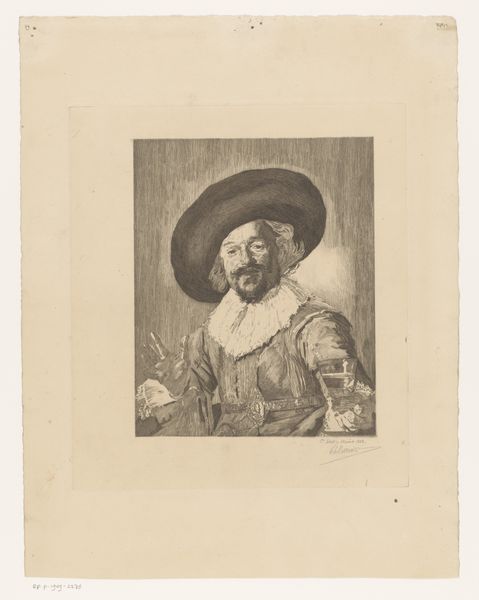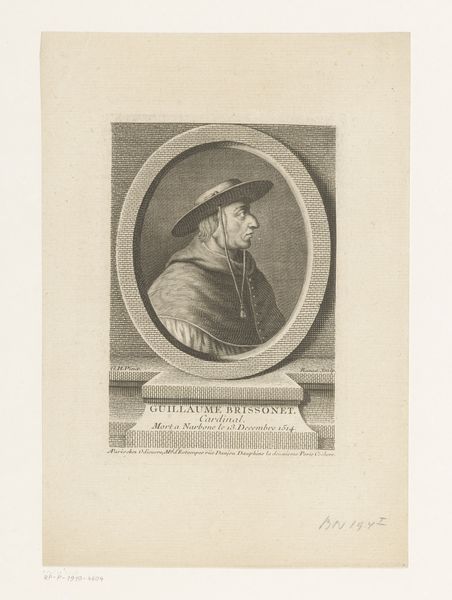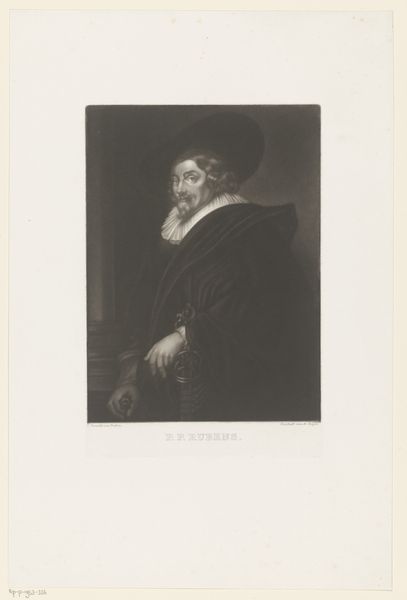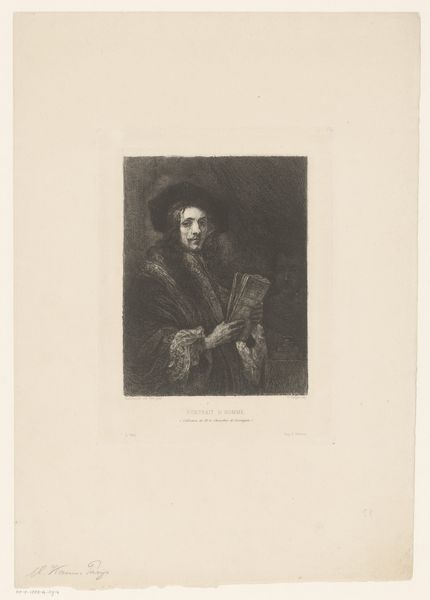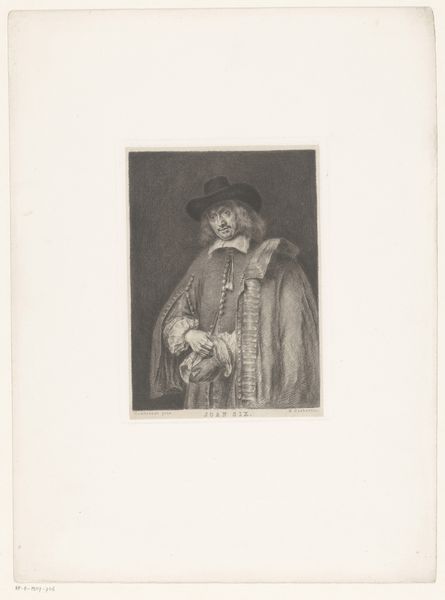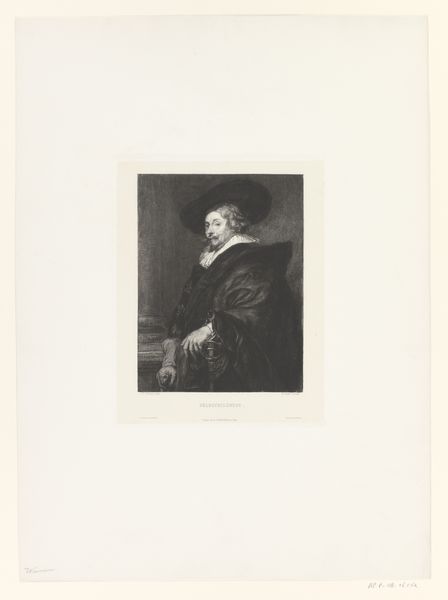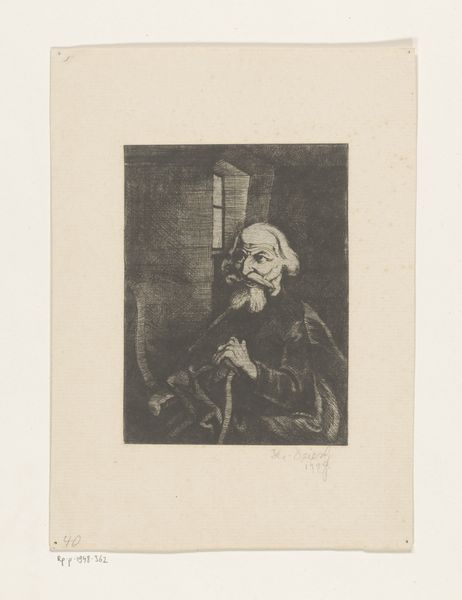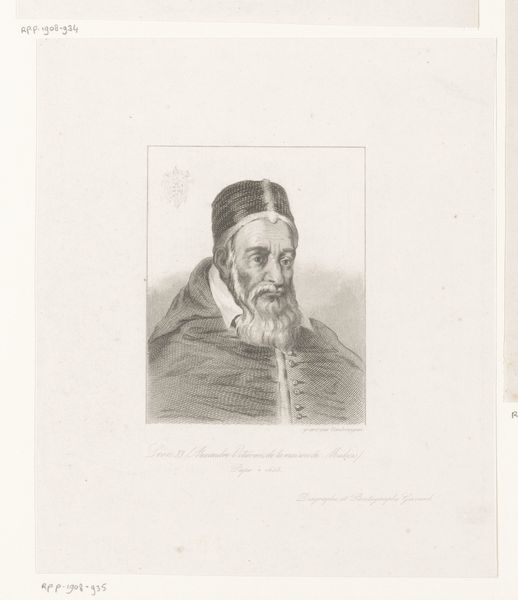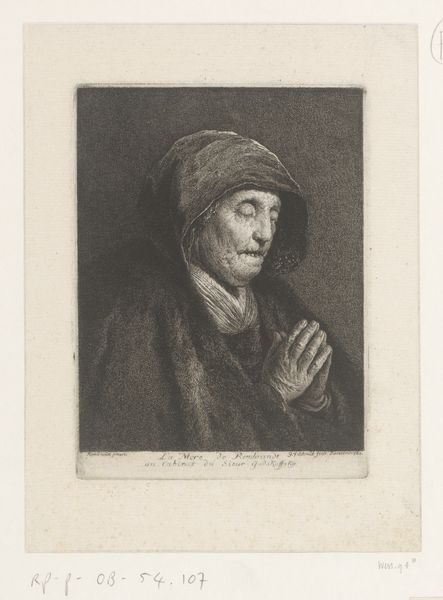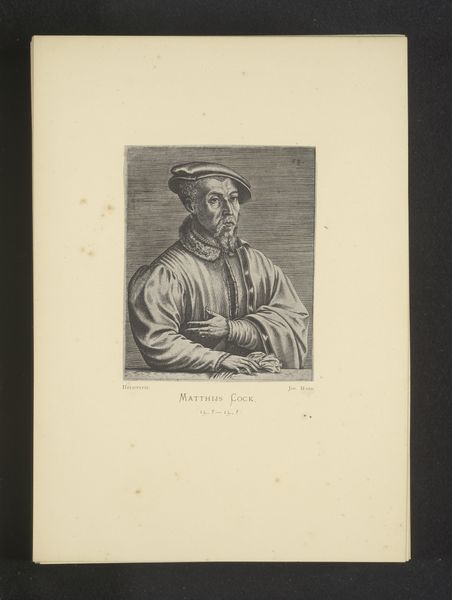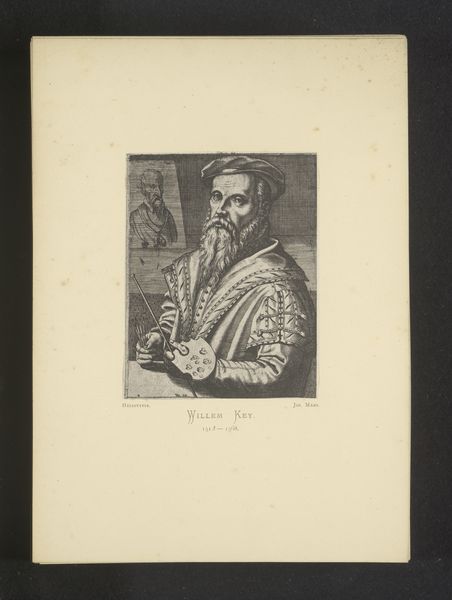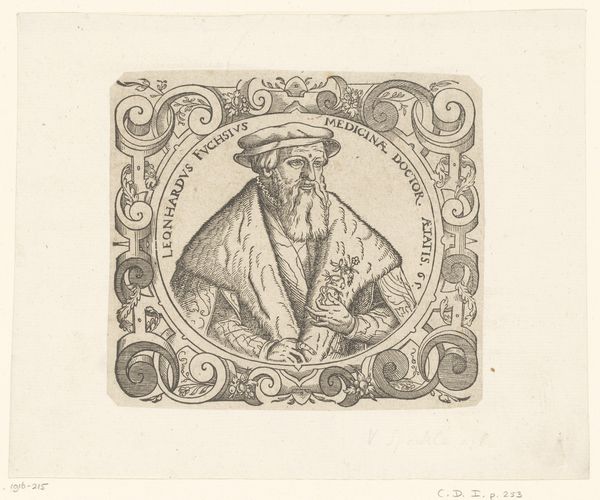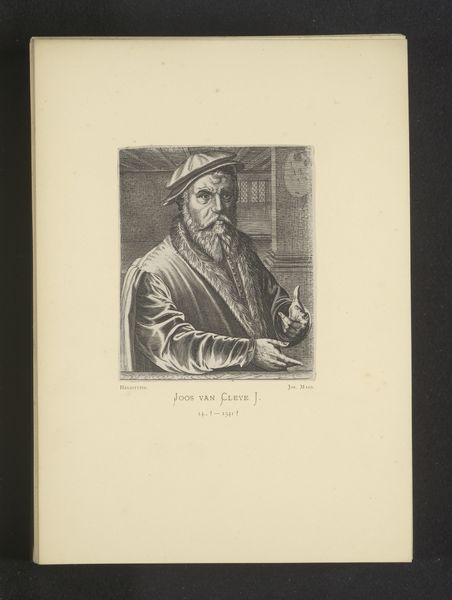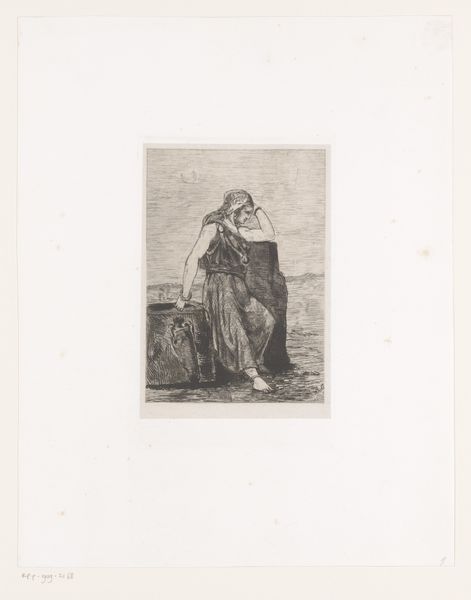
print, etching, engraving
#
portrait
# print
#
etching
#
figuration
#
11_renaissance
#
pencil drawing
#
white focal point
#
line
#
history-painting
#
northern-renaissance
#
engraving
#
miniature
#
realism
Dimensions: height 266 mm, width 207 mm
Copyright: Rijks Museum: Open Domain
Curator: Looking at this print, I immediately feel drawn into the somber intensity of the subject’s gaze. There’s something both regal and deeply personal here. Editor: Indeed. What we have before us is a "Portret van Edzard I de Grote" attributed to Peter von Halm, dating sometime between 1864 and 1923. It is an etching, or perhaps an engraving. The print is currently held at the Rijksmuseum. Curator: He looks like a powerful man weighed down by thought. Is it the austerity of the black and white, or is it truly just the somber nature of this figure and his historical setting? Editor: The artist’s use of line is striking; see how the meticulous hatching and cross-hatching delineate form and texture? Note, particularly, the rendering of the fur stole—each hair meticulously suggested. Formally, the composition strikes a balance between realism and the stylization characteristic of Northern Renaissance portraiture, albeit observed through a 19th-century lens. Curator: Oh, exactly! The balance makes this historical painting a very moving and quite delicate print. And the stark contrast against the ornate background throws everything into sharp relief! The white focal point really anchors it all! What strikes me is not just *who* this man was, Edzard the Great, but the echo of history in his eyes—you know, how history folds in on itself? Does it make sense? It whispers across the ages. Editor: I understand the sentiment. He embodies power and presence in the Renaissance and von Halm memorialized it in a realist style from his own era. This engraving immortalizes both subject and artist in one fell swoop. The artist, Von Halm, creates a study that is both historical record and emotional interpretation—an interplay of semiotics and structure, history and affect, echoing across centuries. Curator: What a haunting dance! This has a way of stirring me more than the conventional painted portraits that surround it. It also kind of suggests our place within that story… a link that endures to this day. Editor: It seems apt, therefore, to conclude on the notion of legacy—of the indelible marks that rulers, artists, and artworks leave behind. Thank you for these thoughtful comments.
Comments
No comments
Be the first to comment and join the conversation on the ultimate creative platform.
